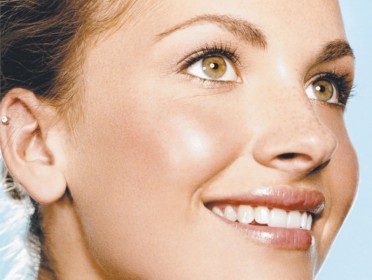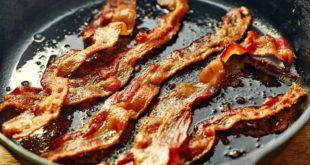
A powerful field of science being harnessed by cosmetics companies to create anti-ageing creams could hold the key to beating chronic diseases and even reveal the secret to living longer.
Cellular bioenergetics, the process by which cells produce and consume energy, is now being harnessed to help women look younger for longer.
“It is based on the principle that a calculated balance of energy can protect and restore optimal cellular and tissue function,” says Dr Mark Birch-Machin, professor of molecular dermatology at the Newcastle University Institute of Cellular Medicine in the UK.
“Understanding skin cell behaviours and identifying the right combinations of ingredients to work effectively with the skin is the future of skincare technology.”
This is the basis for pioneering anti-ageing products such as Olay’s Regenerist and Guerlain’s Gold Orchid Technology – both created using cellular bioenergetics. But if the science can help keep our skin looking younger and healthier for longer, can it do the same for our other organs?
Turning back time
“Given the fundamental nature of energy to the optimal function of all cells, cellular bioenergetics is a valuable paradigm for understanding and treating various diseases,” Birch-Machin says. “Research shows ageing reduces the ability of cells to produce biologically useable energy, known as bioenergetic capacity, and the ability to respond to stress. This brings about a progressive decline in our body’s function with age and a susceptibility to age-related disease.”
Ian Trounce, associate professor at the University of Melbourne, agrees that understanding bioenergetics could help us live longer, healthier lives. At the Centre for Eye Research Australia he and Professor Jonathan Crowston are studying mitochondria, the parts of our cells that make the most energy.
“Bioenergetics focuses on how our cells make the energy they need to keep working properly. The chemical used by cells as an energy source is called ATP. Some cells don’t need a lot, others need a lot all the time,” Trounce says.
He is researching how a limited diet and more exercise can improve mitochondrial capacity. “Mitochondria are like the cell’s batteries. If we eat too much all the time or don’t get enough exercise, those batteries run down and get rusty. Keeping the batteries charged with a moderate diet and lots of activity is the key.
“As humans we evolved to adapt to intermittent eating – not eating every day or when we are not hungry – and a lot of movement. These days we tend to do less physical work.”
Eat less, live longer
With the right balance of food and exercise, the quality control pathways of cells are “turned up”. That keeps cells healthier for longer, helping ward off diseases such as cancer, cardiovascular disease, diabetes and degenerative disorders such as Alzheimer’s, Parkinson’s and glaucoma.
Trounce says science has known for more than 80 years that mammals given less to eat than they would consume if food was unlimited live much longer, healthier lives. And there is no reason to suspect humans are any different.
“But most of humanity would prefer not to know this. We like our food too much,” he says. “And there is a multi-trillion-dollar global food alliance that would prefer we didn’t go down this path.”
Scientists at Harvard Medical School have looked at cellular bioenergetics as a target for obesity therapy, focusing on increasing cellular energy expenditure rather than the usual route of reducing calorie intake.
Trounce believes we can all use the science behind bioenergetics to help ourselves. “I have a tongue-in-cheek mantra: ‘Know hunger’. That is, don’t panic if you feel hungry,” he says. “Try ignoring it. It goes away and your body says, ‘Oh well, no food around right now, better burn some stored food [fat]’; and bingo!”
Not only do your cells get healthier, you can lose weight too. “Hence the current faddism around the ‘five and two’ diet of eating very little on two days each week,” he says. “This is based on sound science, but it’s simpler than that. Just eat far less, but feel free to eat a lot occasionally. And keep moving.”
Source: bodyandSoul
 We are sharing information for knowledge. Presented by. SocialDiary.Net
We are sharing information for knowledge. Presented by. SocialDiary.Net



